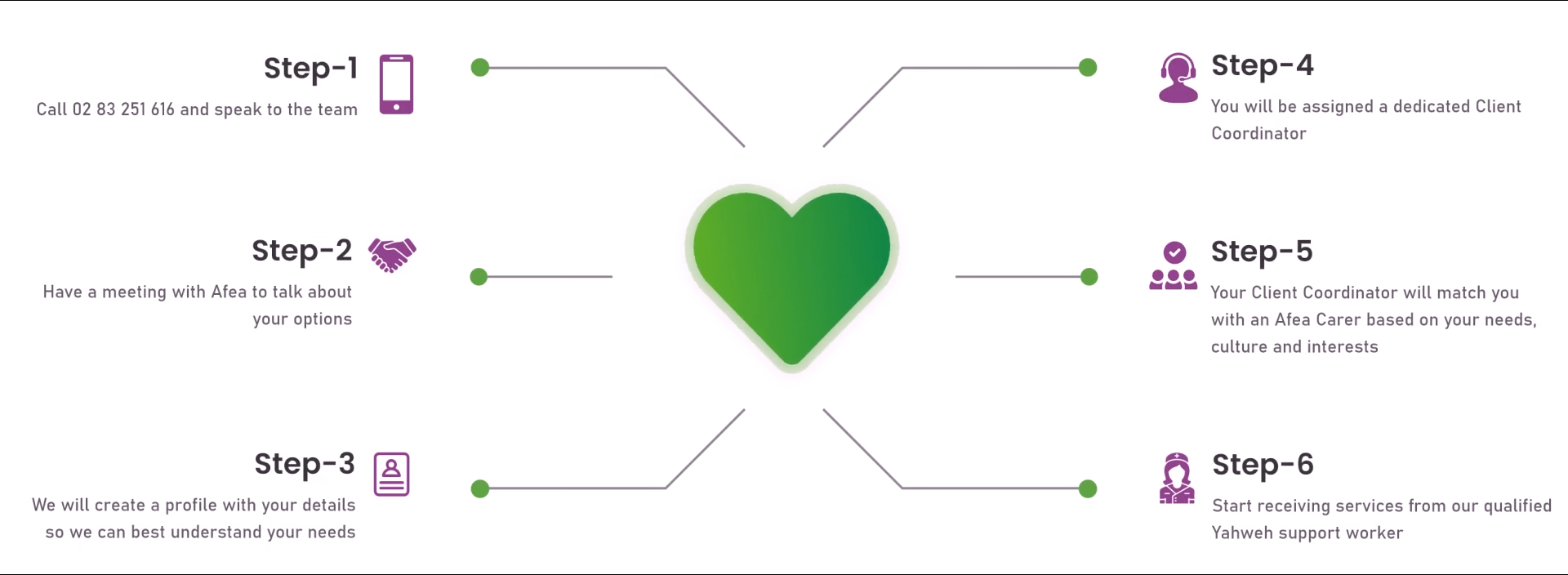SWITCH TO YAHWEH CARE
Providing care and holistic approach to NDIS participants aiming to create opportunities for you to live your best life.
Contact UsSome people with disability can normally live their lives to the fullest. Meaning, they can navigate through the demands of society without home care. Also, they can go to school, they can work, they can even socialize with friends. However, there are some who can’t seem to function without an aid.
In certain situations, people with disability who rely on round-the-clock support deal with mental and emotional health issues. These individuals struggle to find the necessary courage to express themselves. Often find it hard to connect with others due to their dependent condition. Thus, additional care is required.
Thankfully, home care support for people with disabilities is available and is an ongoing community responsibility. It is not only in the heart of Sydney but also worldwide. But before taking any measures and looking for home care for people with disability in Sydney, one must first understand a few things. First, what types of disability require the particular home care support service.

A disability is a condition that impacts a person’s life. It can be an issue with physical mobility, hearing impairment, visual loss, speech disorders, and mental illness. However, it is significant to note that some mental health issues are manageable. It means people with mental or cognitive health problems can still live with the best quality of life. Some may still be able to function normally like others and can still contribute to society.
For those who are mentally challenged, people deal with the disability differently. Since not all disabled individuals are equal, some may live with their condition through routines and habits. While they do, others require assistance or extra care.
Some disabilities are temporary, while there are some that can be permanent. A few examples of temporary ones include physical injuries, torn ligaments, broken limbs, short-term concussion, temporary vision or hearing loss. It also includes post-op surgery rehabilitation, and other forms of conditions that require a recovery medical treatment.
On the other hand, permanent disability is defined as the loss of motion or literally losing a body part. These may be an amputation of the leg or arm, loss of strength in a particular part of the body. It can also mean a permanent loss of hearing and sight, chronic heart disease, lung damage, as well as traumatic brain injury.
Knowing what type of disability is essential before anyone can seek out advanced home care support. The types of disability that require home care services should follow a criterion. However, it is essential to note that the criteria for home care support in Sydney vary from one NDIS service provider to another. Some of the few criteria for required home care and 24/7 disability support services are the following:
People with disability may take advantage of home care support when they are in a state of incompetence in securing their life and societal function. These may include the inability to work or secure an occupation, the inability to provide for their personal care and needs, and the inability to contribute something to society.
Home care for these disabled individuals requires patience and consideration since most of them will often decline help. These people often struggle with problem-solving, decision-making, and logical reasoning.
People with disability who require home care support workers’ presence are usually the ones who can’t manage their personal needs or often have issues with self-care. Usually, they are the ones with mobility issues, too.
They struggle with poor hygiene. In some instances despite their eagerness to live independently, they can’t clean themselves or can’t take a bath alone, can’t brush their teeth, can’t comb their hair, and can’t prepare meals for themselves.
Also, everyday tasks like dressing or undressing, getting up in bed, and house cleaning and tidying can be very overwhelming for them. These individuals often find it impossible to maintain independence and notice the dysfunctions around them or can’t do things alone due to their physical impairment.

People with disability can apply for 24/7 home care support, especially when they are dealing with a neurological condition. Some of the conditions that bring disabled people significant neurological struggles include multiple sclerosis, stroke, spinal cord injuries, epilepsy, Alzheimer’s disease, dementia, Cerebral palsy, and Parkinson’s disease.
Though common in aged care, individuals with these conditions can also include war veterans, children and adults.
People with disability who are having developmental challenges often need home care support. Though not all of them do, the ones with autism spectrum disorder, speech delays, language disorders, Fragile X syndrome, and severe cases of AHDH may require 24/7 assistance due to the nature of the symptoms of the following conditions.
Though some symptoms are manageable, there are people with disability who still require immediate assistance at all times.
24/7 home care support is required for people with disability when they are dealing with severe mental health issues that impact their way of living.
The conditions, such as clinical depression, post-traumatic stress disorder, anxiety disorder, paranoia, Bipolar affective disorder, eating disorder, Obsessive-compulsive disorder, Dissociation and dissociative disorders, behavioural and emotional disorders, and substance abuse disorder may require home care service, especially when the trigger seems to affect people with disability’s motivation and will to live.
At times, counseling and occupational therapy, as well as medication, work wonders to help disabled people maintain a functioning life. However, depending on the severity of the cognitive illness, some may require home service due to the risk of self-harm and suicidal tendencies.
People with disability who have social issues may not require 24/7 home care. However, depending on the severity of the patient’s social anxiety disorder, one can apply for home care support. Especially, when they no longer have the ability to express themselves or communicate properly with others. Often, they struggle to form and maintain meaningful relationships.
Fortunately, socialisation problems can be addressed over time through therapy sessions. But in rare cases, individuals may struggle to socially engage with their family or close friends.

Not all people with disabilities require 24/7 home care disability services. In fairness, there are those who can live their lives regardless of their situation. There are those who remain confident about their capabilities and are eager to return to the world and help out with the local community.
Unfortunately, quite a few people with disability are not as motivated as the others. And even if they want to contribute something to society, their conditions can be a problem and a hindrance to their optimistic goal.
Home care service and management is a commitment, and people with a disability deserve the best. Thus, looking for the right one can be tough.
Thankfully, you can seek professional help from Yahweh Care. They are professionally trained and skilled individuals who understand the needs of people with disability. Yahweh Care providers focus on empowering and enhancing lives.
Contact them if you need 24/7 home care disability support carers. They will help you with your round-the-clock needs.
Providing care and holistic approach to NDIS participants aiming to create opportunities for you to live your best life.
Contact Us


